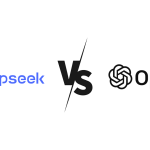- Epic Games Lawsuit Against Google and Samsung: A New Battle Over App Store Monopoly
- Samsung’s Auto Blocker: The Core of the Epic Games Lawsuit
- Fighting for Fair Competition: Epic’s Broader Mission
- Is User Safety the Real Reason Behind Auto Blocker?
- The Legal Journey Continues: What’s at Stake?
- What’s Next for Epic?
- Conclusion
Epic Games Lawsuit Against Google and Samsung: A New Battle Over App Store Monopoly
The Epic Games lawsuit against Google and Samsung marks the latest chapter in a fierce legal battle over mobile app store monopolies. The gaming giant, Epic Games, known for its popular Fortnite game, has once again filed an antitrust lawsuit, this time targeting both Google and Samsung. The lawsuit accuses these tech giants of colluding to block competition by implementing Samsung’s Auto Blocker feature, which restricts users from installing third-party app stores like the Epic Games Store.
Samsung’s Auto Blocker: The Core of the Epic Games Lawsuit
At the heart of Epic’s lawsuit is Samsung’s Auto Blocker feature, which is turned on by default on new Samsung phones. According to Epic, this feature restricts users from installing apps unless they come from “authorized sources”—namely Google Play or Samsung’s own Galaxy Store. The issue arises when third-party app stores, like the newly launched Epic Games Store, are effectively blocked or made exceedingly difficult to install due to this security setting.
Epic argues that Samsung’s Auto Blocker requires users to navigate an “exceptionally onerous 21-step process” to install rival app stores, discouraging users from completing the installation process. Although Epic’s website claims disabling the Auto Blocker only takes four steps, the game developer insists that the process is deliberately designed to be frustrating, thereby deterring users from seeking alternatives to Google Play or the Galaxy Store.
Fighting for Fair Competition: Epic’s Broader Mission
The Epic Games lawsuit against Google and Samsung isn’t just about gaining an advantage for its own platform. According to Tim Sweeney, CEO of Epic Games, the company is fighting for fair competition on behalf of all app developers. “If we had fought the Epic Games lawsuit against Google and Samsung solely for Epic’s benefit, we might have settled by now,” said Sweeney. “But this is about creating a fair playing field for all developers.”
This lawsuit follows a similar case in 2020, when Epic sued Google for antitrust violations related to Google’s app store policies. In that case, Epic successfully argued that Google’s practices harmed competition. The new Epic Games lawsuit against Google and Samsung is another step in Epic’s ongoing effort to challenge the monopolistic control of mobile app ecosystems.
Is User Safety the Real Reason Behind Auto Blocker?
Samsung and Google claim that user safety is the primary reason for the Auto Blocker feature. They argue that the feature protects users from potentially harmful apps that are not downloaded from official app stores. Google’s Dave Kleidermacher, head of Android security, has denied any collusion between Google and Samsung. According to Kleidermacher, Google did not request Samsung to create Auto Blocker, and the company maintains that the feature is a safeguard against malware and other threats.
However, the Epic Games lawsuit against Google and Samsung questions these motives. Epic claims that Auto Blocker doesn’t actually evaluate the safety of individual apps before blocking them, and its main purpose is to limit competition. “This feature isn’t about safety—it’s about keeping competitors like us out of the marketplace,” said Sweeney.
The Legal Journey Continues: What’s at Stake?
The outcome of the Epic Games lawsuit against Google and Samsung could have far-reaching implications for both developers and users. If Epic wins, it could lead to more open and competitive mobile app ecosystems, where users can easily access third-party app stores. This could also reduce the dominance of Google Play and the Galaxy Store, allowing more app developers to compete fairly.
The lawsuit is positioned as a continuation of Epic’s previous legal battles. The Epic Games lawsuit against Google and Samsung builds on the earlier ruling in Epic v. Google, where a jury found Google’s app store policies to be restrictive. Epic hopes that this new lawsuit will further challenge these restrictive practices and create a more level playing field for third-party app stores.
Google and Samsung’s Defense
Samsung and Google have both issued statements defending their actions. Samsung claims that users can easily disable Auto Blocker during the initial setup process, and that the feature is designed with user safety in mind. Google, in turn, denies any involvement in the creation of Auto Blocker and emphasizes that Android allows sideloading apps from third-party sources.
In response to the Epic Games lawsuit against Google and Samsung, Google spokesperson Dan Jackson stated, “This is a meritless lawsuit. Android device makers are free to implement additional security features on their devices to protect users from potential threats.”
Despite these defenses, Epic is pushing forward with its legal action, arguing that user protection is being used as a cover for anti-competitive behavior. The Epic Games lawsuit against Google and Samsung seeks a jury trial, with Epic hoping that the discovery process will uncover evidence of collusion between the two tech giants.
What’s Next for Epic?
As the legal battle progresses, the Epic Games lawsuit against Google and Samsung could reshape the way app stores operate on Android devices. Epic is positioning itself as a champion for app developers, advocating for more open competition and fewer barriers to entry. The company’s goal is to prevent Google and Samsung from using security features like Auto Blocker as tools for maintaining their control over the app store market.
Epic’s fight is not just limited to Google and Samsung. Tim Sweeney has hinted that the company may take legal action against other companies if they follow similar practices. For now, though, the focus remains on the Epic Games’s lawsuit against Google and Samsung, as the company continues its quest for fairer competition in the mobile app ecosystem.
Conclusion
The Epic Games lawsuit against Google and Samsung is another significant step in the ongoing battle over app store monopolies. While Google and Samsung defend their practices as necessary for user safety, Epic claims that these features are designed to limit competition and maintain their dominance in the market. As this legal battle unfolds, the outcome could have far-reaching consequences for developers and users alike, potentially changing the way third-party app stores operate on Android devices.






